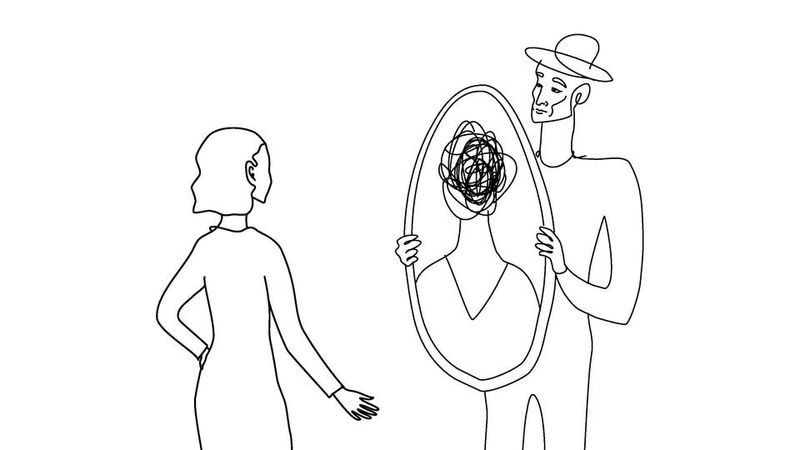You’re tired, but you can’t name why. You keep replaying old conversations, half-convinced you’re overreacting, half-certain you’re not. Maybe you’ve started to wonder if it’s you. Or maybe you’re just scared of what it would mean if it’s not.
Here’s something honest: You can care about someone and still get totally spun by them. Manipulation in friendship doesn’t always wear a villain’s mask. Sometimes it smiles. Sometimes it cries on your shoulder and thanks you for saving them—then quietly shifts the blame when you need saving.
If you’re reading this, you probably already suspect something’s off. Here are sixteen real, specific clues that your friend might be a manipulator—even if you’re not ready to let go yet.
1. They Paint Themselves as the Victim—Every Time
Did you noticed how your friend always finds a way to become the wounded party? It doesn’t matter what happened—they spin every story so they’re the one who suffered most.
You might try to share your struggles, but somehow, the spotlight always shifts back. Suddenly, you’re comforting them for something you didn’t even do, feeling guilty for simply existing.
This isn’t just about wanting support. It’s about emotional acrobatics. You start to minimize your own pain, learning to swallow it so their needs always come first. Over time, you realize your conversations have less to do with connection and more to do with managing their moods.
2. Guilt Trips Are Their Favorite Weapon
You cancel plans, and suddenly, you’re the worst friend in the world. They remind you of every favor they’ve ever done, each time you “let them down.”
You end up saying yes just to make the guilt stop. They’re experts at weaving obligation into every favor, every kind word—making you feel like you owe them more than you ever really did.
It’s less about connection and more about control. You find yourself resentful but still showing up, trying to keep the peace because the alternative is a relentless wave of passive-aggressive comments. You start second-guessing every boundary you try to set. That old, heavy feeling of guilt is friendship’s price.
3. Truth Gets Twisted—Every Time
Ever left a conversation more confused than when you started? That’s no accident. A manipulator will bend facts, omit details, and edit stories on the fly.
They’re masters at making you question your memory. You remember something one way, but by the time they’re done talking, you wonder if it ever happened at all.
They’ll say, “That’s not what I said,” oppure, “You’re remembering it wrong.” The goal isn’t honesty—it’s creating enough fog that you stop trusting yourself. Eventually, you start double-checking your own reality, tiptoeing around the truth just to keep the peace.
4. Backhanded Compliments That Sting
“You look great—for once.” That’s their idea of kindness. You know these compliments; they land like a slap wrapped in silk.
You laugh it off, but the sting lingers. You tell yourself it’s just their way, but after a while, your confidence starts to crack.
Every achievement gets a twist. You finish a big project, and they say, “I’m shocked you pulled it off.” It isn’t just jealousy—it’s a need to make you doubt yourself. You start dimming your own light, just to avoid the next “joke” or offhand jab. It’s end by a thousand cuts, and it’s always dressed as caring.
5. Love One Minute, Rage the Next
Their mood swings feel like whiplash. One day, you’re their favorite person; the next, you walk on eggshells, terrified by how quickly things turn.
You start to obsess over every word, every text, hoping not to trigger the storm. The warmth they show becomes a currency—you learn to chase it, to earn it.
There’s fear in your day-to-day. You adjust your plans, your tone, even your opinions just to avoid another explosion. The unpredictability keeps you tangled. You think, “If I try harder, maybe things will stay good.” But you also know how quickly the sky can turn.
6. Their Needs Devour Your Free Time
It always starts as an emergency. “I need you.” “Can you talk?” You drop what you’re doing, again and again, because loyalty feels like a test you can’t afford to fail.
But after a while, their “needs” never end. Your own plans get shoved aside. You start lying to protect your time, then feel guilty for it.
Your world shrinks. Friends drift away. Even basic self-care slips, because you’re always on-call for someone else’s crisis. There’s a loneliness in the constant giving, a quiet ache when you realize you’re the only one ever making space.
7. Passive-Aggression Is Second Nature
There’s a silence that says more than words ever could. Your friend won’t say what’s wrong—they’ll just withdraw, drop pointed comments, or give you that look.
You apologize, even when you’re not sure what for. The rules keep changing; you never know what will set them off next.
It’s exhausting. You try to decode every sigh, every text left on read. You end up doing emotional gymnastics, just trying to pull the mood back to neutral. It’s less about solving problems and more about surviving another round of mind games.
8. Boundaries? What Boundaries?
You try to say no. They laugh it off, or worse, act hurt. You say you’re busy, and they show up anyway.
Your life starts to feel invaded. Every "no" turns into a negotiation, each request for space gets twisted into rejection.
Eventually, you quit asking. You shrink your boundaries, not because you want to, but because it’s just easier than fighting. You wonder if you’re too sensitive—if real friends are supposed to feel this exposed. That voice in your head gets quieter every time you let another line get crossed.
9. Every Conversation Circles Back to Them
You start talking about your day, but your words barely finish before the subject flips. Suddenly, it’s all about their drama, their success, their heartbreak.
You nod, you listen, you try to share again. The cycle repeats. You could vanish from the planet and they might not notice—unless it inconvenienced them.
It’s not friendship, it’s an audience. Your own stories start to feel too small to bother sharing. You wonder if you matter, even a little. The loneliness of being unheard is its own kind of heartbreak.
10. Charm That Feels Too Good to Be True
When you first met, you felt seen—finally, someone who “got” you. Their attention was intoxicating. They remembered tiny details, made you feel special.
But that charm became a hook, not a bond. The warmth faded the moment you questioned them, or tried to set a boundary.
All of a sudden you noticed the mask slip. What once felt like magic now looks like strategy. You catch yourself missing the person they pretended to be, wondering if you imagined the shift. That confusion is their greatest trick.
11. They Make You Doubt Your Own Reality (Gaslighting)
You’d swear you remember what they said. But they insist it never happened. You find yourself replaying conversations, doubting every memory.
They say you’re “too sensitive,” “imagining things,” o “overreacting.” Soon, you start believing them more than yourself.
Your confidence quietly erodes. You wonder if you’re losing your grip, if you’re the problem. The cruelest part: gaslighting makes you your own jailer. You keep yourself small because you can’t trust your own mind.
12. They Weaponize Your Insecurities
They know exactly what makes you squirm. Every slip, every insecurity you confessed in confidence, becomes ammunition when the moment suits them.
You hear your worst fears echoed back as jokes or “concerns.” They bring it up in front of others, just to see you flinch.
You start guarding what you share, shrinking your honesty. The space that once felt safe now feels like a trap. The betrayal isn’t always loud, but it’s always sharp—and it’s always personal.
13. Trust Is a One-Way Street
Have you ever spilled your guts, only to find your secrets making the rounds? They demand loyalty, but never offer it in return.
You catch wind of stories you told in confidence, twisted for someone else’s entertainment. It’s not a slip—it’s a pattern.
You stop confiding. You learn to keep your real life to yourself. Trust starts to feel like a luxury you can’t afford. The friendship becomes a careful performance, and you wonder when the next betrayal will drop.
14. Silence as a Sword
Nothing feels worse than being iced out by someone you care about. They know it, too. The silent treatment becomes their weapon of choice.
You apologize for things you didn’t do, just to get a response. The quiet stretches days, sometimes weeks, and you carry the weight of imagined crimes.
It’s a power play, pure and simple. They create the problem, then force you to fix it. You start fearing silence as much as you fear their anger. In that lonely space, you find yourself shrinking, just to break the tension.
15. There’s Always a Hidden Agenda
Did you ever feel like every nice thing they do comes with invisible strings? That favor you didn’t ask for suddenly reappears as leverage in the next argument.
They’re generous only when there’s something in it for them. You’re never sure if a compliment is genuine, or if it’s setting you up for a future ask.
The scorekeeping never ends. You start to feel like you owe them more than you’re comfortable with. What looks like kindness is just careful investment—and you’re the currency.
16. You’re Always Walking on Eggshells
You wake up anxious, replaying yesterday’s words. Every interaction feels like a minefield. You start scripting conversations in your head, terrified of setting them off.
You keep your real opinions to yourself. You apologize before you even speak. It’s not just stress—it’s hypervigilance, the body’s way of adapting to unpredictable danger.
Your sense of self shrinks, replaced by constant self-monitoring. At some point, you realize: it’s not just about avoiding conflict. It’s about surviving the friendship. That’s how you know it’s gone too far.

















